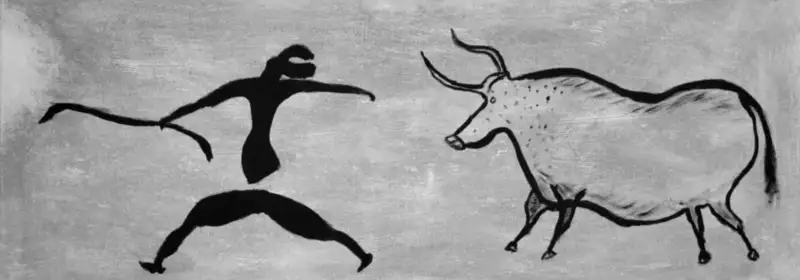“Those who cannot remember the past are condemned to repeat it.” – Philosopher George Santayana
Studying the past is essential to understanding the future. Although, History delves much deeper than just remembering people, key events and dates from years gone by.
Instead, it provides context and understanding of the how and why. It helps us identify how our nations, cities and communities came to be. Where our ancestors originated from and who they were. It gives us insight into other ethnic heritage and ancestry as well as our own. So we can have a greater understanding of those who are different from us.
Through History, we can get to grips with how societies, technology, and governments have developed over time. Elevating our understanding of them in the modern day. By considering the context around why the world has changed the way it has, we can get a better idea of the potential future that lies ahead for us. And how the changes we see happening now could positively or negatively affect our existence.
Look at how the industrial era led to the urbanisation of cities across the world. The eruption of factories demanded a high level of labour. With the economic growth and job opportunities that became available, many were drawn to the city. Prompting other industries to follow suit.
Cities have since been the hive of activity in countries across the world for many years. However, events in the modern era now look to be turning this on its head. With many industries looking to take their business out of cities and back into rural or coastal areas.
By looking back, reflecting and considering past events, we can learn from our successes and mistakes. Avoiding cases of ill-fated History repeating itself and shaping a better future.

An Overview of What’s Involved
By studying History at A Level, you can build on your existing knowledge of historical events. You will study fascinating movements like The Industrialisation of Britain and Democracy and Nazism in Germany. As well as carry out a historical investigation on a 100-year period of your choice.
Each unit will enhance your eye for detail as you learn to identify key moments in History. You’ll then need to critically analyse sources and historic accounts to help you shape structured arguments. You will have the chance to test the robustness of your sources through problem-solving. Plus, your ability to articulate your viewpoint as you debate your findings in a balanced way.
The course content for your A-Level will vary depending on where you study it. However, as A Level courses are regulated, each A Level in History holds the same weight. No matter the topics covered.
You will be required to undertake a Tutor Marked Assignment (TMA) at the end of each unit. Once each assignment has been passed you can sit your exams.
The first exam concentrates on the study of significant historical developments for around 100-years and the associated interpretations.
The second exam requires you to study a period of major historical change or development and the associated primary evidence.
The final assessment being the submission of a historical investigation examining a 100-year period.
Following the successful completion of your A-Level, you will have the option of taking your education further at university or apply your knowledge and skills to a profession.

Modules of the course
Following an Introduction to History, where you will gain an understanding of key principles and explore pivotal moments over 200 years, you will study the below:
Industrialisation and the People: Britain, c1783-1885
By studying the change, continuity, cause and consequence within this period, you will be able to assess how Britain was governed. How democracy and political organisations transformed and advanced. The pressures faced by governments and their responses. How and to what detriment the economy, society and social policy developed and changed. Plus, the importance of ideas, ideology, the role of individuals and groups and how they were affected by these developments.
Democracy and Nazism: Germany, 1918-1945
In this module, you will look in-depth at the era of German History where a newly developed democratic form of government gave way to a fascist Nazi regime. You will evaluate political concepts like 'right' and 'left', nationalism and liberalism. Along with ideological concepts such as racialism, anti-Semitism and Social Darwinism. These studies will inspire you to reflect on governments and the problems of democratic states, to consider what creates and sustains a dictatorship.
Historical Investigation
Here you will submit an investigation based on a historical development or issue, subjected to numerous historical interpretations. This will be an independently researched piece, written by you. It will draw upon your investigation of primary and secondary sources relating to your chosen topic and the contrasting interpretations of it.
The Skills You’ll Gain
The work and assessments you will complete throughout the course will give you several transferrable skills and qualities that will desirable to employers and universities respectively.
By studying History, you will develop your critical reasoning and analytical skills, as well as the capacity for solving problems and thinking creatively. You will demonstrate intellectual rigour and independence, together with the capacity to conduct detailed research. You’ll be able to build arguments and communicate findings clearly and persuasively, whether spoken or in writing.
It will teach you to work without supervision but also discuss your ideas within groups. Negotiating, questioning and summarising the elements highlighted.
Moreover, you will be able to think objectively. Approaching problems and new situations with an open mind. While appreciating the different factors influencing the actions of groups and individuals in society.
The Paths You Can Take After A-Level
The knowledge and skills acquired through the study of History can be applied to a wide range of disciplines. Leading to diverse employment opportunities.
Many influential business leaders have a background in History and have successfully utilised the skills gained to lead a successful career. For instance, Ken Chenault, the CEO of American Express, studied History at college. The former CEO of Hewlett-Packard Carly Fiorina had a degree in Medieval History and the documentary filmmaker Louis Theroux also has a History degree.
Some of the more popular career options you can take your History qualification into include government positions like the Departments of Foreign Affairs, Immigration and Aboriginal Affairs. Other roles include becoming a teacher, journalist, tourism professional, working in a museum or becoming a librarian.

Why Study A-Level at Home?
By deciding to study your History A-Level with a distance learning provider, you can do so around your existing commitments.
So, if you’re studying History as a hobby, or you are looking to get the qualification to enhance your career, you can complete the course outside of your current work hours. Or after you’ve settled the kids down for the night.
With our online A Levels there are no set timetables, physical classes or start dates. You can begin your course the day you enrol and work your way through the materials at a pace that suits you. This flexibility often results in students completing the course in around 9 months, depending on when they enrol.
Learning through a variety of mediums, the course materials are engaging and diverse. Always available online, there’s no fear of missing what the teacher said because you couldn’t take notes quick enough. Take your time and take it in.
An experienced tutor who is an expert in the field will be assigned to you throughout the course. Should you have any questions or queries, they are available to assist you through the online portal.
learndirect is the UK’s leading distance learning provider. If you are interested in studying your History A-Level, click the link below to view the course specification. To learn more about distance learning check out our blog.




















